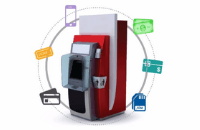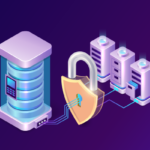The size of the prepaid card market is set to exceed $3.653 trillion by 2022. This is a CAGR of over 22.7% over 2016-22. The reason for this incredible growth is increasing interest in unbanked populations. Moreover, people who have bad credit ratings or simply do not have bank accounts can also avail the services of prepaid cards without any strings attached. Apart from individual customers, businesses and governments also create unique prepaid offers. They target customers across a broad range of prepaid card use cases either directly or through partnerships with third party payment processors.
The potential for services availed through prepaid cards is potentially limitless. With prepaid cards, commodities such as travel fare and healthcare as well as special discounts and public services are available at a single access point in some cases.
For Consumers
Consumers buy prepaid cards for a variety of purposes that all involve the purchase of commodities. This usually helps them stay within budget and not over spend.
General Purpose Reloadable Cards
The most basic of the prepaid cards are General Purpose Reloadable (GPR) cards. These cards may bear the logo of one of the major payment schemes like VISA and MasterCard or a country specific domestic payment scheme. These can be loaded up with a certain amount of money (minimum and maximum limits apply) and used to pay bills, buy food items and electronics etc. These are accepted everywhere the payment scheme they bear the logo of is accepted. They can act as a budgeting tool and a multipurpose payment tool.
However most prepaid cards are used for specific services. For example, customers use prepaid mobile cards to top up their mobile phones. Prepaid transit cards or transit passes can be used to take a limited number of pre-purchased trips indefinitely or an unlimited number of pre-purchased trips within a certain period of time. For example, customers use multi-purpose Oyster card in London to travel in double decker buses, the subway, the trams, river buses and trains. Similarly, the Metro Card in New York City allows users to ride in the multiple modes of transportation. These cards usually allow customers to ride using discounted rates and of course the ease of using every mode of public transport available is a huge upside.
Prepaid Travel Cards
Prepaid travel cards are another great tool to budget money for a holiday or a business trip abroad. They can be loaded up with your home currency before you leave the country and can be accepted at any merchant or any business that recognizes the payment service in use. When a transaction goes through, the amount is converted to local currency automatically. These cards free the traveler from the hassle of cashing travellers cheques as well as carrying cash.
Prepaid Health Cards
Health cards are a very basic example of health insurance. As long as payments are updated in time, the card can help for an emergency visit to the hospital, annual check ups, medicine refills and treatment. There are even special cards to help patients get treatment for specific diseases like dengue fever and malaria.
Prepaid Student Cards
These cards allow benefits afforded by universities through partnerships with various banks and restaurants and brands. Students can top up their cards or link them with their bank accounts. Using prepaid student cards, students may also receive special discounts, rewards and prizes on their IDs.
Prepaid Gift Cards
Perhaps the most often marketed prepaid card is the gift card. Some of the biggest companies like Apple, Google, Amazon, Nintendo, Netflix and Sony offer gift cards to their customers. Customers use these cards to buy memberships, applications, games, in app purchases, avail special bundle offers and get discounts on premium offers. The prices can range from $5 to $500 dollars and in some rare cases can reach $25000. These however, are closed loop gift cards that are only usable on single platforms; open loop gift cards are usable anywhere the payment processing brand is usable. They aren’t reloadable and can only be used until the credit runs out which is how they differ from GPRs and normal prepaid cards.
Turn Down Products
Turn Down Products are reserved for customers whose credit ratings are bad according to the Chexsystem or another database and so doesn’t allow them to qualify for a bank account or a prepaid debit card. These products can serve as a path to a better credit rating by offering prepaid financial services for specific commodities. However, there are usually such few turn down requests that the product is only profitable if prepaid financial services are just one aspect of the turn down product.
For Businesses
Businesses purchase prepaid cards to hand out services specifically linked to their employees. These allow their employees to avail benefits otherwise unavailable to them.
Prepaid Payroll Cards
Payroll cards allow transfer of salaries to unbanked employees. They can use these to pay bills, purchase goods and withdraw money from ATMs. These cards reduce the cost and increase the efficiency of processing salaries across all employees and solve the no bank account problem quite effectively. Similarly, prepaid incentive cards allow employers to hand out bonuses or reward employees on their stellar performance.
Prepaid Expense Cards
Prepaid business cards allow employees, clients and contractors to purchase office supplies, go through trip expenses and consulting services. Health savings accounts cards also offer several expenses to be paid through them once the payments on the card are done. The employees can also earn interest on them and buy medical supplies, medicines and pay for treatment. These health cards are liable to work with a few designated pharmacies and hospitals and may not always provide healthcare at every clinic or hospital.
Prepaid Insurance Cards
Insurance companies offer prepaid insurance cards for consumers to keep track of their payments and avail their services for automobile accidents and payouts for workers and property insurance.
For Governments
Governments use their benefit cards to hand out services to citizens such as food stamps, food rations, unemployment benefits, health care vouchers, child support, veterans benefits and social security payments. These services prove highly valuable to those in need especially under economic crises and during old age where all these services can converge at one point to avoid people the effort of having to go to different government agencies to avail different services.
Trends Going in to the Future
With the prepaid card market growing each year there is an incentive to encourage customer use. Companies are trying different methods to get consumers to rely on prepaid cards for their day to day purchases. This obviously involves getting multiple companies and merchants to accept these cards.
Prepaid Card Top-up Options
Banks are allowing for multiple ways to add money to prepaid cards. Customers can take pictures of cheques and upload them to the bank app to clear them. Customers can also use ATMs at various stores such as Walmart and Best Buy to load up their cards.
Ways to Increase Card Usage
To encourage more card transactions and less cash withdrawals through the card, companies incentivize transactions and charge fees on withdrawals. On top of that, certain banks allow for cash back incentives on all purchases to encourage loyalty. Companies also allow one master prepaid account that users can link to multiple cards called companion cards. This allows a family or group of people to operate on a single account.
In order to improve card activation rates, some companies reward customers who regularly keep their cards loaded. Some even waive off the annual fees if the credit doesn’t go below a certain limit.
Account Management
For management of funds banks have allowed for alerts to go through text messages, emails and application notifications. Online account management also allows customers to transfer funds from one account to the other. Prepaid cards are also going to become linked to mobile contactless payment, making account management much easier.
Pepaid Card Management Solution
As customers are demanding safer and smarter alternatives to cash, many financial institutions around the world are launching prepaid cards. For fast penetration in this growing market, financial institutions need to have the backing of innovative payment solution providers. TPS offers IRIS PCMS which is a one-stop, end-to-end solution for development, processing, and administration of open and closed loop prepaid card programs from pre-issuance to post-issuance.










Leave A Comment